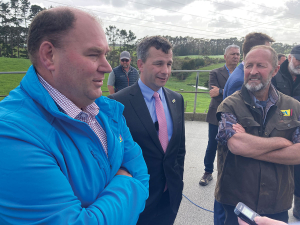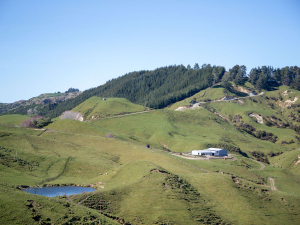With $9m to invest, from a financial perspective the return on capital should knock spots off a bank deposit at current interest rates, assuming the farm or farms are well managed.
Then there's the opportunity for capital growth. Okay, farm values have eased in the past two or three years, but they're at a level now where sales activity is picking up and it seems unlikely values will go lower; long-term the trend is bound to be up.
But the merits could be more than monetary. With its fingers in some dairy pies, council staff would have involvement with practical farming, even if only at a directional level. If the council went the whole hog, or should we say 'whole cow', they might even have some colleagues who manage and work on the farm(s). Inherent them-and-us barriers of communication between farmer and regional regulator could be broken, allowing policy makers and enforcers an inside line on the impact of their actions or proposals at a grass roots level. Granted, there are farmers or former farmers at the Horizons' council table already, but this proposal could enhance understanding among council rank and file.
However, it's this inside line the nay-sayers – mostly environmentalists – have leapt on, crying in near unison "conflict of interest". How could a regional council, whose primary function is environmental regulation, police a business on consent criteria if it owns that business?
Clearly, there's not a lot of trust in the integrity of the council. Then again, these nay-sayers are mostly the sort of people who would rather we didn't have dairy farms in New Zealand, or at least, not at the scale and intensity needed to be efficient at today's land and milk prices.
So should Horizons listen to them, or go ahead with its dairy investment and be damned? Sadly, the answer is it would probably be better to go elsewhere with its money. The perception of conflict of interest would be hard to shake off, particularly if for some reason one of the farms it did invest in happened to have a lapse in its effluent management, or some other activity that caused a breach of consent conditions.
Horizons' recent history has been controversial enough. It shouldn't court further agro. If it does, and things go wrong, the people of Palmerston North and the wider region could suddenly find themselves in the situation of Cantabrians, with commissioners, rather than elected councillors, ruling the roost.








